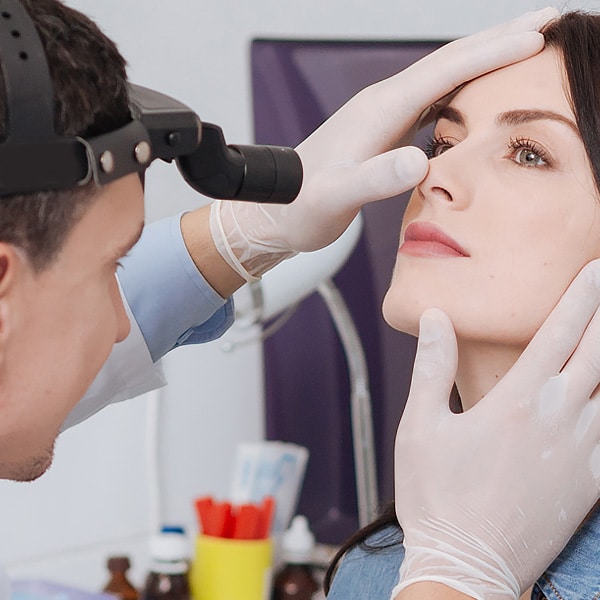Inside the nose and sinuses, abnormal tissue growths known as polyps can develop. Sinuses are hollow areas in the bones of the face. Nasal polyps can be found in any of the sinuses and in both sides of the nose. Nasal polyps are driven by long term inflammation in the nose from allergies, infection and an unbalanced immune response. Many people who have nasal polyps also have “chronic sinusitis,” a condition that can cause a stuffy nose, pain in the face, and discharge (mucus) from the nose. Small polyps do not usually cause any symptoms, but large nasal polyps or a cluster of several small polyps can cause stuffiness, pressure, or even trouble smelling.
How can you find out if you have polyps or if polyps are causing you problems? Large polyps can be seen with a simple nasal exam. Dr. McDonald can use a special tool that allows him to look far up into the nostrils and identify any polyps in the nasal cavity. Occasionally some are too far up to see, and a CT scan will be ordered to take images of the inside of the nose to get a better idea of the extent of the polyps.
Firstline treatment for nasal polyps often includes medicated nasal sprays. These sprays typically have steroids in them that decrease the swelling and inflammation associated with nasal polyps. If the nasal polyps shrink with steroids, that may be all that is needed. However, not all nasal polyps respond to steroids and surgery is sometimes recommended to remove them.
Particularly large and obstructive nasal polyps may need to be removed endoscopically. This procedure involves using an endoscope, a small nasal telescope that removes nasal polyps without making incisions or disturbing normal tissue. These procedures are often performed on an outpatient basis and you go home the same day. For most people, this produces great results and can restore better breathing, sense of smell, and asthma control for those who suffer from nasal polyps.
